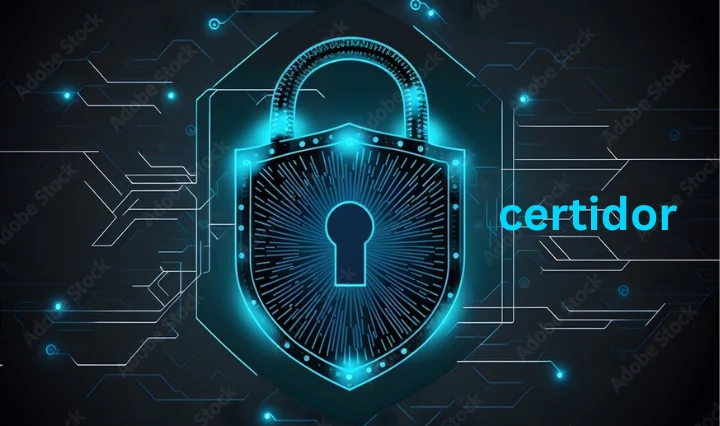Introduction to Certidor
In the realm of online transactions and digital interactions, trust and security are paramount. Enter Certidor, a cutting-edge verification platform designed to enhance the trustworthiness of online interactions. Certidor acts as a digital certification service, providing a secure and reliable method for verifying the authenticity of various digital assets and transactions.
How Certidor Works
Certidor employs advanced encryption algorithms and blockchain technology to ensure the integrity and authenticity of digital records. When a user submits a document or initiates a transaction through Certidor, the platform verifies the information using a combination of cryptographic techniques and data analysis. Once verified, the information is stored securely on the blockchain, creating an immutable record that can be accessed and authenticated by authorized parties.
Benefits of Certidor
One of the primary benefits of Certidor is its ability to instill trust and confidence in online transactions. By providing a secure and transparent verification process, Certidor helps to mitigate the risks associated with fraud and identity theft. Additionally, Certidor streamlines the verification process, reducing the time and resources required to authenticate digital assets.
Certidor vs Traditional Verification Methods
Compared to traditional verification methods such as notarization or manual authentication processes, Certidor offers several advantages. Traditional methods are often time-consuming and labor-intensive, requiring physical presence and documentation. In contrast, Certidor enables seamless verification through digital channels, eliminating the need for paper-based documentation and physical verification.
Applications of Certidor
Certidor has a wide range of applications across various industries. In e-commerce, Certidor can be used to verify the authenticity of products and ensure the integrity of online transactions. In financial services, Certidor provides a secure method for verifying identity and authorizing transactions. Additionally, Certidor can be used in legal proceedings to authenticate digital documents and records.
Certidor in Online Security
In an era of increasing cyber threats and data breaches, Certidor plays a crucial role in enhancing online security. By providing a tamper-proof record of digital transactions and documents, Certidor helps to prevent fraud and identity theft. Furthermore, Certidor ensures the integrity of data by detecting and preventing unauthorized modifications or tampering.
Certidor and Digital Transformation
As businesses and consumers embrace digitalization, Certidor is poised to play a central role in the digital transformation process. By providing a secure and reliable method for verifying digital assets and transactions, Certidor helps to build trust in online interactions. This, in turn, accelerates the adoption of digital technologies and drives innovation across industries.
Certidor Implementation Challenges
While Certidor offers numerous benefits, its implementation may face certain challenges. One challenge is the adoption barrier, as businesses and individuals may be reluctant to embrace new verification methods. Additionally, concerns about privacy and data security may hinder the widespread adoption of Certidor. Addressing these concerns and educating users about the benefits of Certidor will be crucial for its successful implementation.
Future of Certidor
Looking ahead, Certidor has the potential to revolutionize the way we verify and authenticate digital assets. As technology continues to evolve, Certidor will likely expand its capabilities and applications, becoming an integral part of the digital economy. From enhancing online security to facilitating digital transactions, Certidor is poised to shape the future of trust in the digital age.
Conclusion
In conclusion, Certidor represents a significant advancement in online verification and authentication. By leveraging blockchain technology and advanced encryption algorithms, Certidor provides a secure and transparent method for verifying digital assets and transactions. With its wide range of applications and potential for future development, Certidor is set to play a central role in the digital transformation of businesses and society.
FAQs (Frequently Asked Questions)
- What makes Certidor different from traditional verification methods? Certidor offers a seamless and secure verification process compared to traditional methods, which are often time-consuming and labor-intensive.
- How does Certidor ensure the security of digital transactions? Certidor employs advanced encryption algorithms and blockchain technology to create a tamper-proof record of digital transactions, ensuring their integrity and authenticity.
- Can Certidor be used in legal proceedings? Yes, Certidor can be used to authenticate digital documents and records in legal proceedings, providing a reliable method for verifying their authenticity.
- What are the potential challenges of implementing Certidor? Adoption barriers and concerns about privacy and data security are some of the potential challenges that may arise during the implementation of Certidor.
- What is the future outlook for Certidor? Certidor has the potential to revolutionize the way we verify and authenticate digital assets, shaping the future of trust in the digital age.
